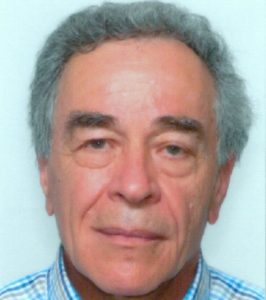István Apáthy
After graduating from university, he worked at the Telecommunications Research Institute (TKI) for nearly two years.
After that, he moved to the Central Physics Research Institute of the Hungarian Academy of Sciences (KFKI). He is a researcher and chief advisor at the Atomic Energy Research Institute of the Hungarian Academy of Sciences (AEKI). He was the head of the Space Dosimetry Research Group until 2010, and then became the managing director of REMRED Kft., a space research company owned by the Energy Research Center of the Hungarian Academy of Sciences (the legal successor of AEKI).
He was a visiting researcher at the Max Planck Institut für Aeronomie between 1985 and 1989. In 1994 he received a European Engineer's Diploma (Fédération Européenne d'Associations Nationales d'Ingénieurs, FEANI).
His area of expertise: development of electronic measuring instruments for spacecraft. One of the developers of the first Hungarian space electronics equipment, chief designer of the first Eastern European microprocessor spacecraft. Charged particle energy spectrometers for the VEGA and Rosetta comet probes and the Phobos Mars probes were developed under his leadership and with his participation. Chief designer of the second-generation “Pille” dose measurement system (Mir space station, International Space Station).
He is the author or co-author of more than 100 articles.
Member of the Board of the Hungarian Astronautical Society; member of the Hungarian Academy of Engineering, the Scientific Council for Space Research; corresponding member of the International Academy of Astronautics.
His awards: Ernő Nagy Memorial Medal (Association of Technical and Natural Science Associations (MTESZ), 1982); State Prize (1986); MTESZ Prize (2003); Zoltán Bay Prize (Minister of National Development, 2005); Dénes Gábor Prize (NOVOFER Foundation, 2008); Széchenyi Prize (2015).
Created: 2016.06.16. 16:57
Last modified: 2025.02.25. 13:11

